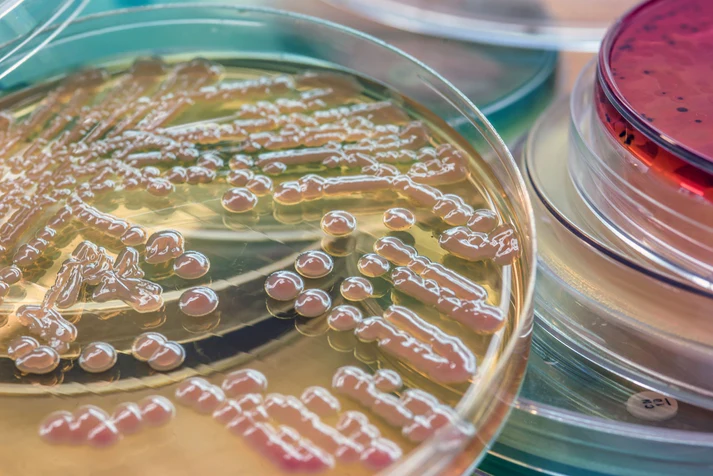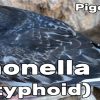
Rotavirus, Circovirus, and Adenovirus Are Common Diseases in Young Racing Pigeons
Protecting Young Racing Pigeons from Rotavirus, Circovirus, and Adenovirus
Racing pigeons, particularly young birds, are highly susceptible to various infections that can significantly impact their health and performance. Among the most concerning viral pathogens affecting pigeons are Rotavirus, Circovirus, and Adenovirus. These viruses not only cause direct illness but also weaken the immune system, making birds more prone to secondary bacterial infections. Understanding these diseases, their symptoms, and the best preventive measures is crucial for maintaining a healthy and competitive loft.
Rotavirus in Pigeons
Overview
-
Rotavirus: A Silent Threat to Young Pigeons
Rotavirus is a highly contagious virus that primarily affects the gastrointestinal system of young pigeons. It can spread quickly within a loft, causing severe diarrhea and dehydration. If left untreated, rotavirus can lead to high mortality rates in young birds.
Symptoms and Impact
- Diarrhea: The most common symptom, which is often watery and excessive.
- Dehydration: Severe fluid loss due to diarrhea can lead to dehydration, a potentially fatal condition.
- Weight Loss: Birds may experience a sharp decline in body condition and energy levels.
- Mortality: In severe cases, pigeons can die from dehydration or complications arising from the infection.
Secondary Effects
Rotavirus disrupts the gut microbiome, leading to dysbacteriosis—an imbalance in beneficial and harmful bacteria. This can allow harmful bacteria like Escherichia coli to thrive, increasing the risk of severe secondary bacterial infections.
Risk Factors
- Stress: Environmental stressors such as extreme heat, overcrowding, and intense training can weaken the immune system, making pigeons more vulnerable.
- Close Contact: The virus spreads quickly in lofts with poor ventilation and hygiene.
Prevention and Treatment
- Vaccination: A specific pigeon rotavirus vaccine is available and provides protection against the virus. Additionally, it offers some cross-protection against other infections like Circovirus.
- Why Vaccination is Essential:
- Vaccination against rotavirus significantly reduces the severity of the disease and limits its spread within the loft.
- It provides cross-protection against other viruses, such as circovirus, ensuring a broader level of immunity.
- Preventing rotavirus infections minimizes the risk of secondary bacterial complications, such as Escherichia coli overgrowth, which can further weaken young birds.
- Supportive Care: Electrolytes and hydration therapy are essential for managing dehydration. Antibiotics may be required if secondary bacterial infections develop.
Circovirus (Pigeon Circovirus or PCV)
Overview
Circovirus is a serious viral disease that suppresses the immune system, leaving pigeons vulnerable to multiple infections. It primarily affects young pigeons and can significantly impact their ability to perform well in races.
Symptoms and Impact
- Immune Suppression: The virus damages lymphoid tissues like the spleen and thymus, leading to reduced immunity.
- Stunted Growth: Infected birds often exhibit poor development and weight gain.
- Decreased Performance: Affected pigeons may become lethargic and show poor flight ability.
- Increased Infections: With a weakened immune system, pigeons are prone to secondary bacterial and viral infections.
Secondary Effects
Circovirus often leads to dysbacteriosis, which allows harmful bacteria to overgrow in the intestines, resulting in severe infections such as enteritis or septicemia.
Risk Factors
- Environmental Stress: Overcrowding, poor ventilation, and extreme temperatures can trigger outbreaks.
- Co-Infection: Circovirus often appears alongside other viral diseases, worsening the health of affected birds.
Prevention and Treatment
- Vaccination: While no specific vaccine for pigeon circovirus exists, experimental vaccines from pig strains have been used, though their effectiveness in pigeons remains uncertain.
-
Why Vaccination is Essential:
- Vaccinating against other preventable diseases ensures that the immune system is not further compromised by additional infections.
- Controlling circovirus through vaccination and loft management reduces overall loft mortality and keeps pigeons in prime condition for racing and breeding.
- Supportive Care: Providing a stress-free, clean environment and proper nutrition is essential. Treating secondary bacterial infections with antibiotics is often necessary.
Adenovirus in Pigeons
Overview
Adenovirus is a viral infection that primarily affects the liver in young pigeons. Though not as common as Rotavirus or Circovirus, Adenovirus can still pose a threat, particularly in lofts where the virus is circulating.
Symptoms and Impact
- Liver Inflammation: The primary symptom of Adenovirus is liver inflammation, leading to impaired liver function.
- Lethargy and Poor Appetite: Affected pigeons often exhibit sluggish behavior and reduced food intake.
- Distended Abdomen: Some birds may develop an enlarged abdomen due to liver swelling or fluid buildup.
- Acute Mortality: In severe cases, pigeons can die suddenly if the liver is severely damaged.
Risk Factors
- Stress: As with other viruses, stress from environmental conditions or intense physical exertion can trigger outbreaks.
- Loft Conditions: Poorly maintained lofts with high bird density can facilitate the spread of Adenovirus.
Secondary Effects
Adenovirus infections can lead to secondary bacterial infections, particularly in the liver, which can progress into bacterial hepatitis.
Prevention and Treatment
- Vaccination: Some poultry adenovirus vaccines have been used in pigeons with limited success, but no pigeon-specific vaccine exists.
-
Why Vaccination is Essential: PHA
- Vaccinating with poultry-derived adenovirus vaccines offers some level of protection, reducing the severity of liver inflammation and associated complications.
- Vaccination, combined with stress reduction, helps prevent outbreaks in lofts where the virus may still be present.
- By reducing the risk of adenovirus infection, vaccination protects against secondary bacterial infections such as bacterial hepatitis, which can further compromise a pigeon’s health.
- Supportive Care: Proper hydration, nutrition, and antibiotic treatment for secondary infections are crucial.
General Prevention and Management
- Vaccination: Vaccinating pigeons against Rotavirus and Adenovirus (using poultry strains) is highly recommended.
- Loft Hygiene: Keeping lofts clean, well-ventilated, and free from overcrowding helps reduce disease transmission.
- Minimizing Stress: Reducing environmental stressors such as heat, overcrowding, and excessive training can strengthen the pigeons’ immune system.
- Regular Monitoring: Observing pigeons for early signs of illness allows for timely intervention and better disease control.
- Proper Nutrition: A well-balanced diet supports immune function and helps birds recover faster from infections.
Conclusion
Rotavirus, Circovirus, and Adenovirus pose serious health threats to young racing pigeons. These viruses not only cause direct illness but also increase susceptibility to dangerous secondary infections. Vaccination, proper loft management, and supportive care are essential for preventing outbreaks and maintaining a strong, healthy pigeon team. By staying proactive with disease prevention, pigeon breeders can ensure their birds stay in peak condition for racing and breeding success.
“Until Next tine Keep Them Healthy And Flying”


